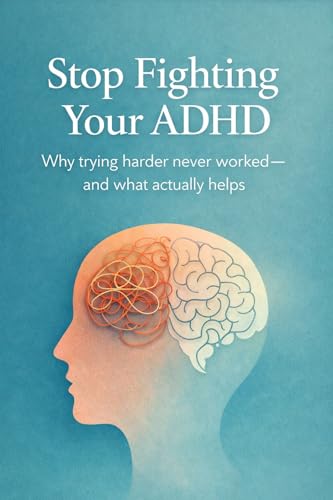Frequently, I face a common question “What the drug-free child ADHD treatment is? Here, ADHD means Attention Deficit Hyperactive Disorder. “Attention problem,” “impulsivity,” and “hyperactivity” criteria and their severity indicate which is appropriate for child ADHD treatment. If this severity is excessive, then it requires medicine with psychological management.
There are many different ways to treat ADHD in children, but not all are created equal. Some treatments are more effective, and some have more side effects. One treatment option that is gaining popularity is a drug-free solution.
This solution involves using different methods to help the child concentrate and focus on tasks. Finding a solution that works for your child is essential, as each child is different. Some children may respond well to one method, while others may not.
The most important thing is to keep trying different things until you find what works for your child. Unfortunately, there is no one-size-fits-all solution to ADHD, but with trial and error, you can find a treatment that helps your child focus and succeed.
| # | Preview | Product | Rating | Price | |
|---|---|---|---|---|---|
| 1 |

| My Son’s Fight Is My Fight ADHD Awareness T-Shirt |
$19.99 | Buy on Amazon | |
| 2 |

| Stop Fighting Your ADHD | $9.99 | Buy on Amazon | |
| 3 |

| Messy Bun Hair Her Fight is My Fight ADHD Mom ADHD Awareness... |
$16.99 | Buy on Amazon |
The necessary treatment for ADHD-related symptoms in a child may include the following:
Behavior management for child ADHD treatment:
Time-out and reward systems are treatment techniques that teach ADHD children appropriate behaviors for the classroom, peer group relationships, and home environment. Parents or other foster care learn from the counseling session. The duration of the counseling session might be six to twelve, with 1 hour per session. They may come 1-2 times per week.
Social skills training for Child ADHD Treatment:
These techniques help the child learn to be less aggressive and impulsive, manage anger, and behave in a more socially acceptable way.
Counseling, including family therapy:
ADHD child, most of the time, passes with their family members. So, counseling their family member is essential to help manage children’s behavior. In family therapy, all family members participate according to a counselor’s suggestion.
Dietary precautions are the most potent drug-free child ADHD treatment:
Children with ADHD can benefit from sugar intake restrictions, preservatives, colorant-free foods, fresh vegetables, and drinking water instead of cool drinks.
Environmental aspects:
Careful consideration should be given to the lighting in the child’s environment, ensuring no flashing, strobe-type lights.
Also significant is the sound volume, primarily from equipment such as radios, TVs, and other electronic equipment. The ADHD child’s environment should be as calm, quiet, and constant as possible.
Routine and consistency:
ADHD-diagnosed children’s daily lifestyle should be as consistent and routine as possible, with no sudden changes or surprises.
Holiday trips, birthday parties, and outings should all be planned well in advance, with plenty of warning talks given daily until the event happens. Children diagnosed with ADHD tend to feel insecure about change.
Communication:
All plans, changes, and occurrences that are out of the ordinary daily routine should be communicated as long as the child gets accustomed to the coming changes or events.
Five common but effective rules for coping with ADHD
Parents need to keep in mind the following rules:
- Please don’t assume they understand what you are saying
- Don’t tell them to “just pay attention.”
- Keep directions short
- Be very clear about the ADHD
- Listen to them by providing a positive attitude.
ADHD clinical evaluation
Experts agree that the most effective way to treat the symptoms of ADHD and any associated problems is to use a combination of different methods of treatment, which might include:
- Medication
- Behavioral therapy
- Psychotherapy
- Educational techniques.
A treatment plan should be developed according to each child’s needs and include the whole family.
Even though the child’s teacher or the school might be the first to suggest that your child might be suffering from the effects of ADHD, your child’s Pediatrician or your GP should be consulted for a proper diagnosis and action plan.
These specialists, together with you, the parent, should decide upon the treatment to be administered, the progress of which should be regularly reviewed.
Regular follow-ups to oversee the ADHD treatment and address any specific concerns you may have should be scheduled regularly. Another article may help: How to Identify the Symptoms and Causes of My ADHD Child?
Last update on 2026-01-30 / Affiliate links / Images from Amazon Product Advertising API

